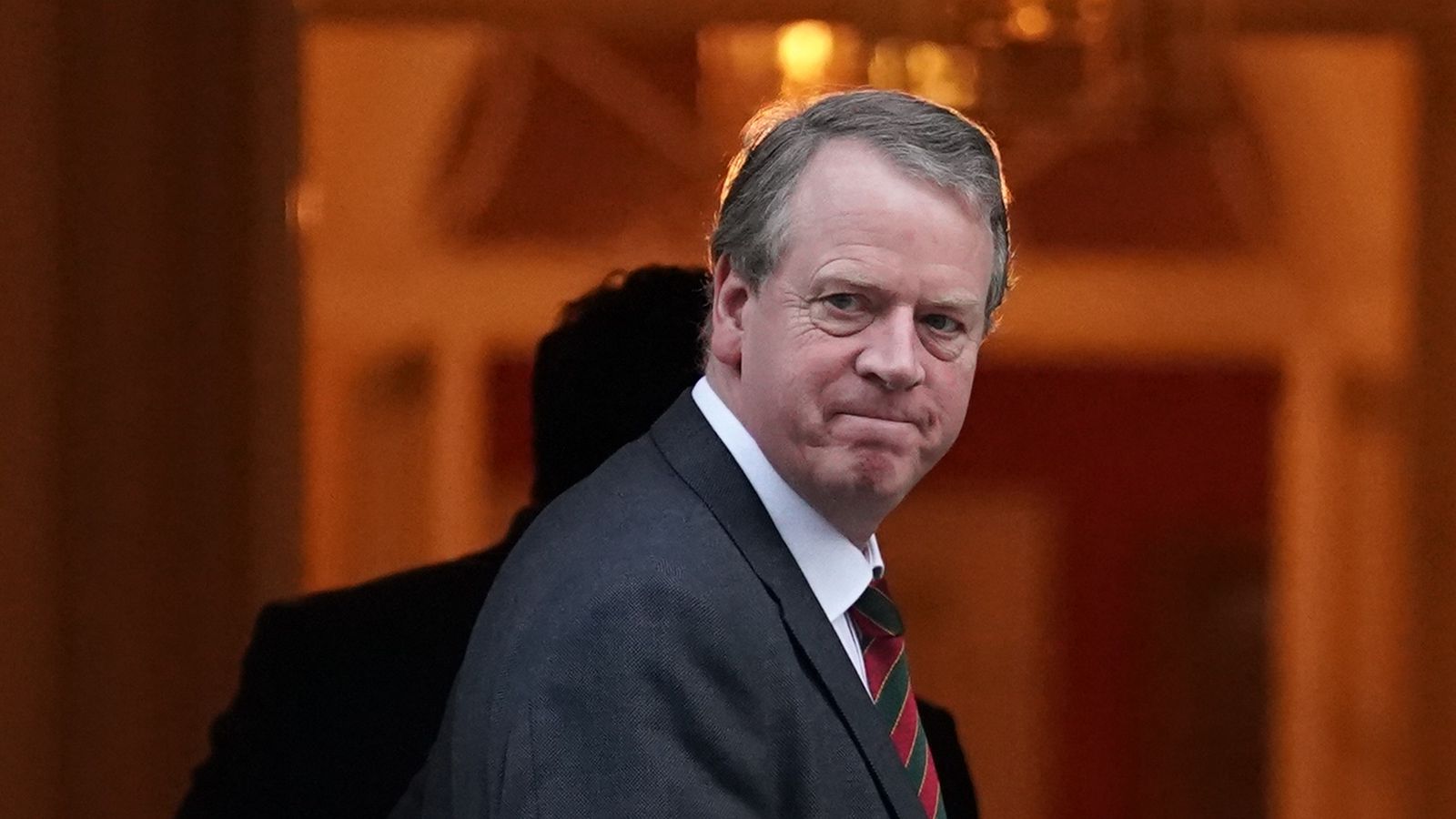The government has insisted it “respects” devolution in Scotland as it defended blocking Holyrood’s gender reform bill.
Making a statement in the Commons, Scotland Secretary Alister Jack said he acknowledged it was a “significant decision” from Westminster to use section 35 of the Scotland Act, stopping the legislation from becoming law.
But he said the power was “not new” and had “existed as long as devolution itself”.
Politics live: Warning of ‘full-blown crisis’ over gender reform bill veto
The minister added: “We should be clear that this is absolutely not about the United Kingdom government being able to veto Scottish parliament legislation whenever it chooses, as some as some have implied.
“The power can only be exercised on specific grounds and the fact that this is the first time it has been necessary to exercise the power in almost 25 years of devolution emphasises that it is not a power to be used lightly.“
Mr Jack continued: “The United Kingdom government does all we can to respect the devolution settlement and to resolve disputes.”
Government brings back plan to ban gay conversion therapy and to include trans conversion
Scotland Gender Recognition Reform Bill: UK move to block legislation likely to escalate tensions with Holyrood
UK government blocks Scotland’s gender reform bill in constitutional first
Throughout his statement, SNP MPs heckled speakers with cries of “shame” and “rubbish” as the debate got heated.
Party spokeswoman Philippa Whitford told the Commons that vetoing the legislation was “an unprecedented attack on the Scottish parliament”.
And former SNP Westminster leader Ian Blackford said: “Isn’t it the case that this absolutely demonstrates that power devolved is power retained?”
The decision to block the gender reform bill was announced by the UK government on Monday night , with Mr Jack confirming he would lay the section 35 order to prevent the legislation from being sent to the King for royal assent – the final stage before a bill becomes law.
He justified the move in the Commons on Tuesday by saying the law would have “a serious adverse impact” on UK-wide law, such as the Equality Act 2010,
The minister added: “The bill also risks creating significant complications from having different gender recognition regimes in the UK and allowing more fraudulent or bad faith applications.”
It is the first time the UK government has used such an order since power was devolved to Scotland and the move sparked anger in Holyrood, with First Minister Nicola Sturgeon calling it “a full-frontal attack” on democracy and claiming UK ministers were “using trans people as a political weapon”.
She pledged to “defend the legislation and stand up for Scotland’s parliament”, adding: “If this Westminster veto succeeds, it will be first of many.”
The bill itself would have lowered the age people could apply to change their gender to 16, removed the need for a medical diagnosis of gender dysphoria for a gender recognition certificate (GRC), and reduced the time an applicant needs to live in their acquired gender.
While it had been welcomed by equality campaigners, UK ministers feared it may lead to gender tourism and that people who change gender in Scotland would have a different legal status when they are in the rest of the UK.
Labour said the row between Westminster and Holyrood had ended up in a “constitutional bun fight”, and that the public were being “let down”.
Shadow Scotland secretary Ian Murray told the Commons: “Trans people who suffer intense discrimination will now not see this legislation take effect any time soon, if at all, and women’s rights groups will likely not see their concerns addressed or their fears alleviated.”





